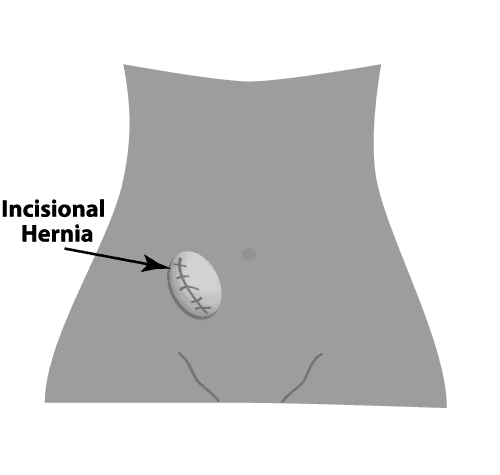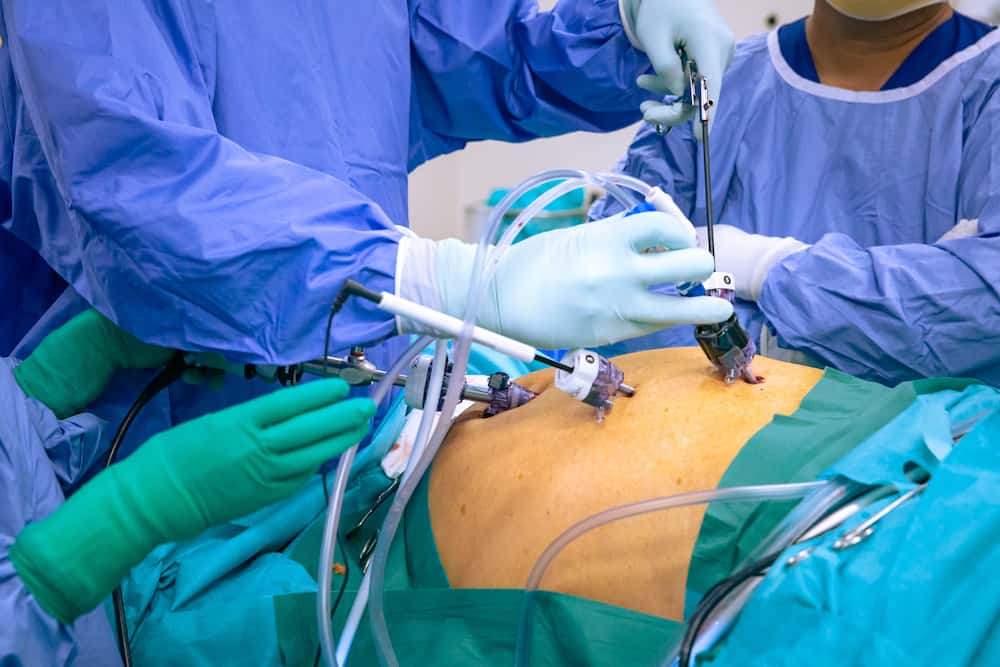What is an incisional hernia?
An incisional hernia is a result of a weakness in your abdominal wall, happening at the site of an incision made during a previous surgery. Any abdominal operation requires a cut that is closed with stitches. Scar tissue following surgery is inherently weaker than the normal tissue and this weakness may lead to an incisional hernia.
There’s no clear reason why a surgical cut might not heal properly and a hernia may form, but incisional hernias do occur in 15 – 20 percent of patients who have undergone abdominal surgery. There are some factors that could contribute to the formation of an incisional hernia which include:
- Too much pressure on the abdomen following surgery.
- Physical activity before the cut has fully healed.
- Falling pregnant before the cut has fully healed.
- Wound infection following surgery.
- Cigarette smoking.
- Being overweight or obese also increases the strain on the abdominal wall.
Incisional hernias can occur anytime following surgery but are most likely to occur within the first six months.

Incisional Hernia Symptoms
Symptoms of an incisional hernia can include:
- A noticeable bulge at the incision site. This bulge is more visible when you are standing, cough or lifting a heavy object.
- Abdominal pain or discomfort, particularly around the incision site.
- Burning or aching near the incision site/hernia.
Incisional hernias are most likely to occur between three to six months after your surgery, but can occur at any time. They are more likely to happen as a result of emergency surgery, or abdominal surgery that requires a large incision.
Incisional Hernia Surgery
As with all hernias, the only treatment option for an incisional hernia is surgery. However, if your hernia is soft and reducible, your doctor may advise that you can delay your incisional hernia repair, you can “watch and wait” depending on your general medical status. If your incisional hernia becomes irreducible, then you will most likely need to have urgent surgery and certainly if a section of intestine becomes strangulated in your hernia you will need emergency surgery. It is also important to note that operations for large hernias can be more complicated than those of small hernias.
Incisional hernia surgery can be performed as open surgery (open hernia repair) or minimally invasive hernia surgery (laparoscopic or robotic).

Title
Laparoscopic Incisional Hernia Surgery
Performing laparoscopic incisional hernia repair surgery, A/Prof Pilgrim will return the bulge back to the abdominal cavity, but rather than making a large incision, the surgery will involve multiple smaller incisions. Hollow tubes are placed in the incisions, gas is used to inflate the abdomen to allow greater visibility and space, and surgical tools including a small camera are inserted into the tubes to perform the surgery.
This minimally invasive form of hernia surgery reduces the risk of infection and means a quicker recovery, and less time spent in hospital. Mesh may also be used in laparoscopic repair. Not all incisional hernias are able to be repaired using laparoscopic techniques, this will depend on the size and severity of the hernia.
Open Incisional Hernia Surgery

Robot Assisted Incisional Hernia Surgery
If you suspect you have an incisional hernia or have an incisional hernia and would like to make an appointment to discuss surgery, you can book an appointment online or call our practice on (03) 9509 4811 to make an appointment with our team.
